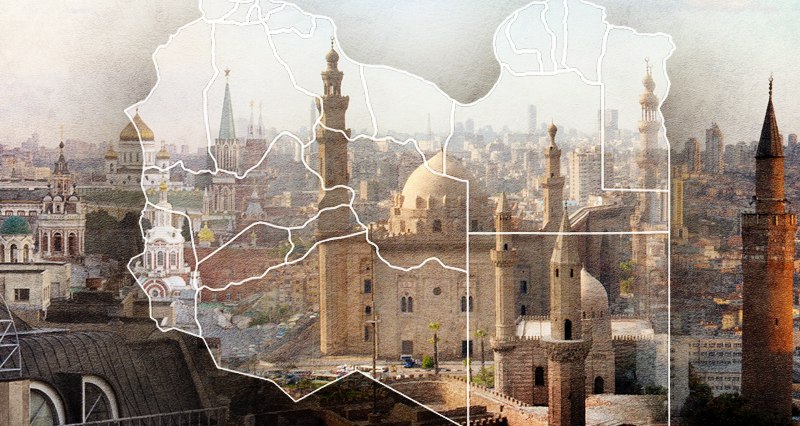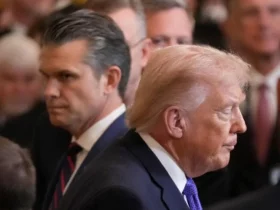Turkey, which strengthened its hand through agreements made with the Government of National Accord (GNA), have gained military superiority in Libya with the advance of the GNA.
The ceasefire declared by Egyptian President el-Sisi, General Khalifa Haftar and Aguile Saleh in Cairo, can be considered evidence of the GNA’s Turkey-reinforced military triumph.
Turkey has, in sum, procured its dominance in the region as it did during the Cyprus Peace Operation in 1974.
Ankara is naturally thrilled with the way the situation is developing, however, it would be wise for them to be aware of the forthcoming period wherein diplomacy will be of critical importance, and adopt a related strategy.
If it fails to do so, a Cyprus-like situation could develop, wherein Turkey will be isolated on an international scale due to the lack of correct diplomatic steps despite being on the side which is militarily superior and legally justified.
The question before Ankara is which diplomatic steps should be taken to carry the military and legal success into the political sphere.
TO BRING THE ASTANA FORMAT INTO LIBYA
The mechanism of the Astana format, established with Moscow, Tehran, and indirectly Damascus in Syria, is a successful example of diplomacy for Ankara to follow.
This mechanism allowed Turkey to secure its benefits in the region and worked as a regional solution to the Syrian crisis.
The call for a ceasefire and a political solution that appeared after the defeat of Haftar in Libya, should be evaluated in light of this mechanism.
Last week, while el-Sisi, Haftar and Salah were conducting a meeting in Cairo simultaneously with the meeting between President Erdoğan and al-Sarraj, the Foreign Minister of Russia, Sergey Lavrov surprisingly met Mohamed Taha Siala, the representative of the GNA, in Moscow.

The real surprise was Lavrov’s message in regard to making an agreement with the GNA in the event of release of Russian hostages.
The news that ‘Moscow had withdrawn its support from Haftar’ that was reported in the media of Russia before and after the meeting between Lavrov and Siala shows that there is a new equation, and the connection between the call of political solution coming from Cairo and the moves of Moscow.
At this point, it is beneficial to note that Aguila Saleh used the expression ‘a political solution without Haftar’ in his statement in Cairo.
Another important development is that during the march of Turkey-reinforced forces in Libya, Russia-reinforced groups retreated from the region including strategically important Al-Watiya Air Base without engaging in combat with the other forces.
It seems clear that Moscow does not want to bump up against Turkey in Libya, and is seeking a middle ground with Egypt by protecting relations between them.
At the end of the day, the probability of finding a common ground between Ankara-Moscow and Cairo in Libya is seeming more and more likely.
In view of the fact that;
- Turkey has been conducting an overseas war in Libya,
- Turkey has made room in the region through the partial support of Algeria and Tunisia,
- The front of the US-Gulf countries-Israel-Greece wants to break the relation between Russia and Turkey through Libya,
- And that Turkey has been forced to engage in combat with Egypt by this very front,
efforts at creating an Astana-like middle ground for Ankara-Moscow-Cairo need to be strengthened.
AT THE TABLE WITH THE UPPER HAND
Achievements of the Turkish Armed Forces and Turkey-reinforced groups have made it crystal clear that Turkey will sit down at the table with the upper hand in Libya tomorrow.
However, if we take all states that are active in Libya into consideration, Turkey needs to incline towards forming an alliance in order to minimize the damage in the forthcoming period and secure its advantage.
It is well known that one of the most powerful countries of the region, Algeria, opposes Haftar, and partially supports the GNA by developing a particular attitude towards the unity of Libya.
Accordingly, it will be beneficial to make moves for Turkey that will remove Algeria’s concerns.
Tunisia, dominated by a double-headed structure consisting of nationalist secularists and the Ennahda Movement that shares common ground with the Muslim Brotherhood, is experiencing a tide of support for the GNA.
Turkey needs to convince the nationalist-secularist groups in Tunisia that there is no ‘secret Muslim Brotherhood agenda’ in Libya.
The US seeks an opportunity to participate more actively in the region by sending troops to Tunisia and disrupting Turkey’s plans.
On the other hand, it is obvious that the Algerian and Tunisian governments will not get into a confrontation wherein they will directly face Egypt due to historical and economic ties.
In the Western bloc, we see that the United States is playing in a bilateral game, and pursuing a policy that preserves its relations with the two sides until the last moment.
Italy is moving in a manner similar to the US, while France, siding with Haftar, has not been effective against Turkey’s active policies.
Turkey’s neighbor Russia, on the other hand, is also looking for a solution that will not lock Egypt out of Libya through Aguile Saleh and his supporters, while taking steps in the manner of withdrawing its support from Haftar.
With a policy that is completely against Turkey, the United Arab Emirates is doing its utmost to pit Cairo against Ankara.
MOSCOW BETWEEN ANKARA AND CAIRO
When we put the pieces together, even though they are on opposite fronts in Libya, there is no reason for Ankara and Moscow not to solve the crisis in direct dialogue or even in cooperation, as was the case in Syria.
The probable cooperation between Ankara and Cairo will positively affect the approach of Algeria, Tunisia and Egypt to the crisis of Libya.
In the forthcoming period, it may be expected that the US-Gulf-Israel-Greece line will mobilize individuals and cliques in Libya to push back against the possibility of Turkish-Russian dialogue.
In the event of taking proper and unifying steps, Turkey will not only protect its interests, but also ward off the West in Libya. Turkey will thrive on winning the countries that are against it today over to its side.
We are experiencing a process that is liable to lead to new developments in the Ankara-Moscow-Cairo line. As the Chinese thinker Sun Tzu expressed centuries ago; “The supreme art of war is to subdue the enemy without fighting”.

















Leave a Reply